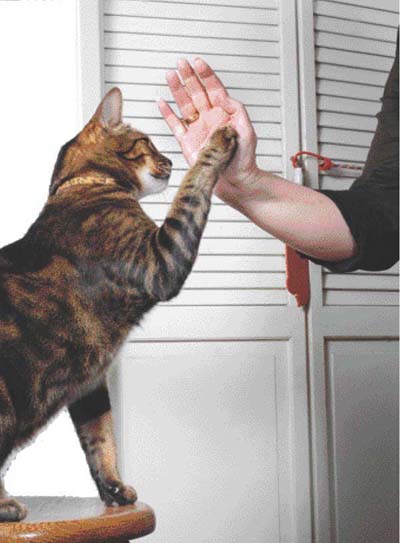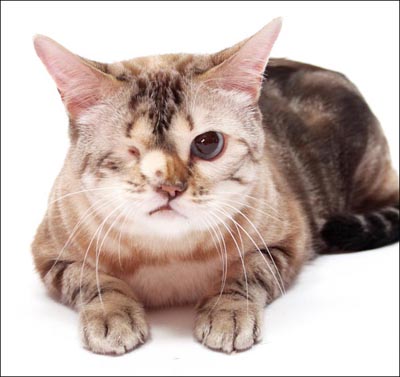The Truth Revealed: You CAN Train Your Cat

VCA Animal Hospitals will present Marilyn Krieger, Certified Cat Behavior Consultant, author and owner of The Cat Coach, LLC®‘s seminar, “The Truth Revealed: You Can Train Your Cat” at CatConLA on Saturday June 25th at 11 a.m. In this guest blog, Marilyn shares ways you can teach and reinforce desired behaviors in your cat.
Has your cat visited the vet recently? VCA has developed many tools to make your cat’s visit a pleasant experience. Give them a call!
Throughout history, cats have been viewed as mystical and enshrouded in myth. The majority of these beliefs are false, and unfortunately many of them have serious consequences for felines. Some of these myths have led cats to be surrendered to shelters, or worse, euthanized. One of the most common of these is that cat behavior can’t be changed and that kitties can’t be trained.
Nothing is further from the truth—cats are not stuck in their ways. Unpleasantries can be stopped by figuring out and addressing the reasons for the behavior along with doing behavior modification and a few environmental changes. One effective and fun way to change behavior and teach tricks is by clicker training—a science based technique that reinforces desired behaviors.
It’s not only youngsters who are trainable. Cats, of all ages, no matter what their physical and mental conditions, can be trained and their behaviors changed. I started clicker training my heart-cat, Maulee, when she was 12 years old and continued to work with her until she finally passed at 21 years of age. Although elderly when I began training her, she was a fast learner—it took about 10 minutes for her to learn to sit on request. Maulee became famous, demonstrating on national television her passion for jumping through hoops and for locating and bringing me my keys. She remained active, alert and continued to learn new behaviors and tricks until shortly before her death. Although Ms. Maulee was special (every cat is special), her ability to learn new behaviors and tricks wasn’t unique to her. Age doesn’t matter—cats of all ages can easily be trained.

Maulee, my elderly cat sleeping on my lap by Marilyn Krieger, CCBC
Clicker training is a powerful tool. It’s great for teaching tricks and when combined with other activities, stops unwanted behaviors such as: scratching furniture, counter surfing, elimination issues and aggressions. It also assists in socializing shy kitties who’d rather hang out under couches than on top of them and help them feel secure. Another benefit is it seems to reduce the symptoms of senility. And, it’s fun and mentally stimulating for everyone—teacher and trainee!
Come to CatConLA and see clicker training in action. You will be amazed how easy it is. Special cats will be on hand to show you how it’s done—including a senior kitty and a special cutie who navigates through her world with only one eye.

Una by Canie Brooks
Keep in mind that it’s about the cats. If they don’t want to participate, that’s OK—they are still perfect.
Marilyn Krieger, Certified Cat Behavior Consultant, author and owner of The Cat Coach, LLC® solves cat behavior problems internationally through Skype and on-site consultations.
You may recognize Marilyn from her book, Naughty No More!, which focuses on changing unwanted cat behaviors through positive-reinforcement methods, or her regular behavior articles she writes for Catster. For 9 years, Marilyn wrote the monthly cat behavior columns for Cat Fancy Magazine and CatChannel. Her articles also have also been published in many other publications including Kittens USA, CatFancy Magazine, USA Today and Catnip, the newsletter for the Cummings School of Vet Medicine at Tufts University.
Marilyn is a frequent guest on television and radio. She has appeared, along with her Bengals and Savannah Cat on Animal Planet, CBS, NatGeo, ABC, KGO and others. Additionally, she guests on many radio shows.
Join Marilyn for lively discussions about cat behavior on her Facebook page and Twitter.
